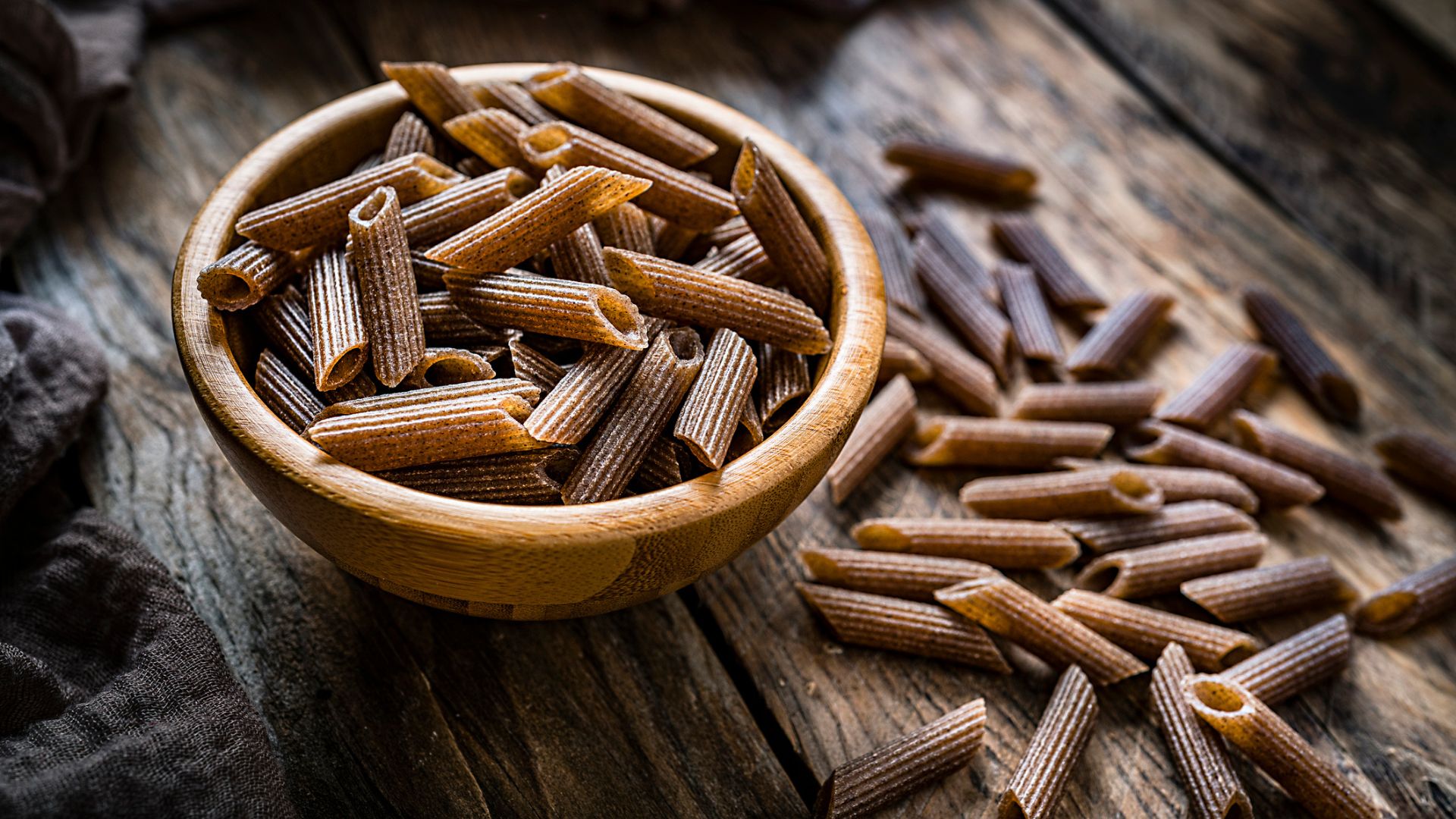How often should you take a break from keto?
How often should you take a break from keto? Here, a nutritionist reveals everything you need to know


If you’re asking yourself, ‘how often should you take a break from keto?’ then it might be time to change up your routine. The ketogenic diet, popularized by celebrities and fitness professionals alike, has been popular for years as a way to lose weight by taking the body into something called ketosis.
Ketosis is when the body uses fat as fuel, rather than its preferred source of energy - carbohydrates. This forces the liver to turn fat cells into ketone bodies, which can be used as fuel. As a result, you lose weight.
To follow the ketogenic diet, however, you have to basically eliminate all carbohydrates. As one of the major food groups that makes up our eating, doing so can cause some issues at the beginning - with a keto headache being the most common. So, if you’re feeling the side effects and want to know about taking a break, here’s what two nutritionists have to say.
How often should you take a break from keto?
You should take a break from the keto diet regularly, whether that's every few days or every couple of weeks. "Following any form of restrictive diet for a prolonged period of time is not recommended," says nutritionist Jenna Hope. "So I’d recommend regularly taking a break from following any form of restrictive diet such as the keto diet, unless you’ve been advised for medical reasons."
The keto diet is a very high-fat, low-carbohydrate plan, she explains. "This poses a risk for high cholesterol if large amounts of saturated fats are consumed. Additionally, a low-carbohydrate diet is typically low in fiber, which if followed for a long period of time, can contribute to impaired gut health."
When it comes to how long you should take a break for exactly, that’s up to you and how you’re feeling. “There’s no set recommended time to take a potential break from the diet,” Signe Svanfeldt, nutritionist at Lifesum, says. “You should focus on eating in a sustainable and varied way that works for you and your lifestyle."
Will I regain weight if I take a break from keto?
If you maintain a calorie deficit on your break from the keto diet, you will still continue to lose weight. High-fiber foods, for instance, are actually one of the best foods for weight loss as, along with protein, they're the most filling.
Sign up to our free daily email for the latest royal and entertainment news, interesting opinion, expert advice on styling and beauty trends, and no-nonsense guides to the health and wellness questions you want answered.
But especially when it comes to leaving the keto diet behind, making sure you maintain a strict calorie deficit to lose weight is essential. "You lose weight on the keto diet not only due to burning fat as fuel,” Svanfeldt says. “Weight loss also happens because carbohydrates bind water, so by reducing the intake of carbohydrates, you lose a lot of water weight. This can return when you start eating carbohydrates again.”
Carbohydrates are the body's main source of energy and, generally, pretty essential to help us maintain our day-to-day lives. But they can contribute to issues like bloating even in their smallest quantities in some people, according to Ohio State University, which is why many people opt for the keto diet in the first place. If you are maintaining a deficit, but aren't seeing continued physical changes in your weight loss, this could be why.

How to take a break from keto
Try to slowly increase your carbohydrates and reduce your fat intake, suggests Hope. "Ensure you’re eating a source of protein with every meal or snack as this will help with satiety and blood sugar control, which in turn should limit cravings," she says. Supplementing you diet with one of the best protein powders could help with this, if you otherwise struggle to get enough protein in your diet.
"Furthermore, try to focus on whole food sources of carbohydrates rather than ultra-processed, high sugar products as these are more likely to stimulate a blood sugar rollercoaster and drive up your appetite."
This could mean opting for a sustainable eating plan like the 80/20 diet rule that focuses on balance, or just increasing your carbohydrate intake little by little every day until you’re back to normal levels, or you return to the diet. Everyone’s keto diet break will look different depending on how much time off they want.
If you just want to take a step back from the full version of the diet, without going on a full break, Svanfeldt has the following tips:
- Choose your carbohydrate intake carefully - “include as many low-carbohydrate vegetables in your diet as possible within your restriction, such as zucchini, broccoli, cauliflower, lettuce, tomato and asparagus,” she says.
- Opt for unsaturated fats - these include avocado, olive oil, salmon, seeds and nuts. “A diet rich in saturated fats like butter, cream and bacon, research from Harvard University shows, increases the risk of cardiovascular diseases while a diet rich in unsaturated fats has been found to do the opposite.”
- Eat a moderate amount of red meat - but if bacon is your brunch go-to, there’s no need to give it up for good. “Try to eat less than 500g per week but you can eat a moderate amount,” Svanfeldt says.
You could also swap in your carbohydrate sources, like opting for different breads and pastas. Homemade bread is so much healthier than shop bought in many cases, while wholegrain pasta tends to be lower or equal in calories and often more filling that its white flour counterparts.

Is it good to have a break from keto?
Yes, it's a good idea to take a break from the keto diet for several reasons, including restoring full gut health, avoiding nutrient deficiency, and ensuring the healthy production of hormones including serotonin.
If you're asking yourself 'how often should you take a break from keto' and why, nutritionists Jenna Hope and Signe Svanfeldt explain why you should consider it sooner rather than later:
1. You can restore your gut health
When you have such a restricted carbohydrate intake, it can be challenging and sometimes impossible to reach the daily recommended amount of dietary fiber, which is around 30g per day, Svanfeldt says.
As a result of this, Hope says, "There's an increase risk of poor diversity and reduced fiber intake. This can lead to an increase in the less desirable gut microbes thriving and a less diverse collection of bacteria in the gut." So if you're on the keto diet and looking for easy ways to improve your gut health, taking a break could be the best idea.
2. You can avoid a nutritional deficiency
The keto diet also poses a risk for nutritional deficiencies including vitamin C, says Hope. As a study by Colorado State University confirms, both animal and refined plant fats are "virtually devoid" of new nutrients like vitamin C, potassium, calcium, magnesium, and folate, so it becomes "difficult or impossible" to create a high-fat, low-carbohydrate plan that includes these in adequate amounts.
"Vitamin C is largely found in fruits and vegetables," she says. "Often individuals following a strict ketogenic diet will be limiting their fruit and vegetable intake as well. Additionally, fruits and vegetables contain a range of phytochemicals [beneficial nutrients found naturally in plants], sticking with a ketogenic diet for a long period of time can limit your intake of these beneficial nutrients."
"It's difficult to get all the vitamins and minerals the body needs on the keto diet," Svanfeldt agrees. "Common side effects of this can include headaches, constipation, and bad breath too."
3. Improve serotonin production
Carbohydrates don't just keep us full, they also keep us happy - a fact that's probably unsurprising for all the pizza and pasta lovers out there. But it's not just because carbohydrates tend to be the primary component of our favorite foods, Hope says.
"Carbohydrates play a vital role in the production of the happy hormone serotonin. Significantly reducing your carbohydrate intake may contribute to lower mood, and therefore, a diet of this nature is actually not recommended for those with impaired mood."
This doesn't mean that a ketogenic diet isn't suitable for those looking to lose weight or change their eating habits, Svanfeldt says.
"There are no studies looking at the long-term effects of the ketogenic diet," she explains. "But what we do know is that a diet rich in vegetables, fruit, wholegrains, as well as lean protein and unsaturated fats is beneficial for our overall wellbeing, both long-term and short-term."
If you want to try the keto diet or have concerns, speak to your doctor.

Grace Walsh is woman&home's Health Channel Editor, working across the areas of fitness, nutrition, sleep, mental health, relationships, and sex. She is also a qualified fitness instructor. In 2025, she will be taking on her third marathon in Brighton, completing her first ultra marathon, and qualifying as a certified personal trainer and nutrition coach.
A digital journalist with over seven years experience as a writer and editor for UK publications, Grace has covered (almost) everything in the world of health and wellbeing with bylines in Cosmopolitan, Red, The i Paper, GoodtoKnow, and more.